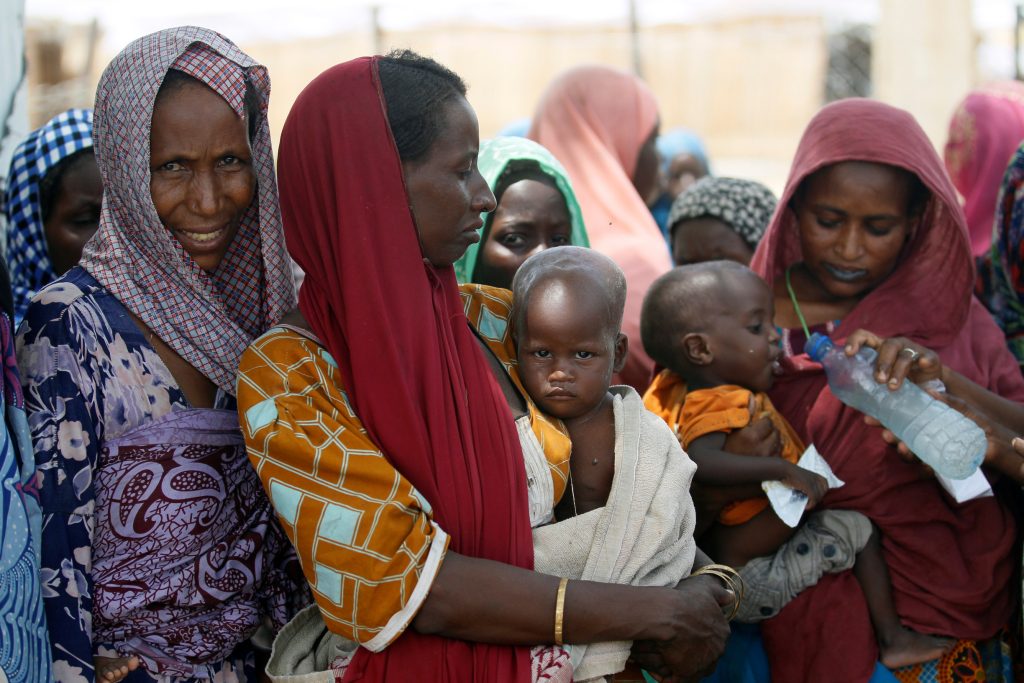By Isaac Anyaogu
LAGOS – More than 31.8 million Nigerians are acutely short of food due to security challenges and the removal of fuel subsidies, the government said on Tuesday, citing a study by several of the country’s international development partners.
The scale of the shortages, which have led to malnutrition among women and children, was set out by the development partners at a meeting with the government on Monday and Tuesday, the Ministry of Budget and Economic Planning said in a statement.
The findings indicate a sharp rise from the 18.6 million people assessed as vulnerable to acute food insecurity from October to December 2023 by the U.N. World Food Programme.
RELATED: Nigeria’s northeast risks mass hunger as UN funding dwindles
“The surge in food commodity prices, which is a result of the removal of fuel subsidy in addition to security challenges, has placed millions of Nigerians in a precarious situation,” the ministry said.
Raids by bandits wielding guns and machetes have forced many farmers to leave their fields, contributing to higher food prices and soaring inflation as Nigeria faces the worst cost of living crisis in a generation.
President Bola Tinubu, who took office in May 2023, removed fuel subsidies to cut down on government spending, in a move that led to a rise in the cost of transportation.
RELATED: Nigeria inflation climbs to 28-year high in March
The study was produced by development partners including the U.N. Food and Agriculture Organization, the Global Alliance for Improved Nutrition and the German development agency GIZ.
The study used statistics from a nutrition analysis by the Cadre Harmonise, a regional food security framework.
Sanjo Faniran, Nigeria’s national convener of Food Systems and director of social development in the budget and economic planning ministry, said the study helped to identify gaps, successes and challenges, and offer recommendations. (Reuters)
